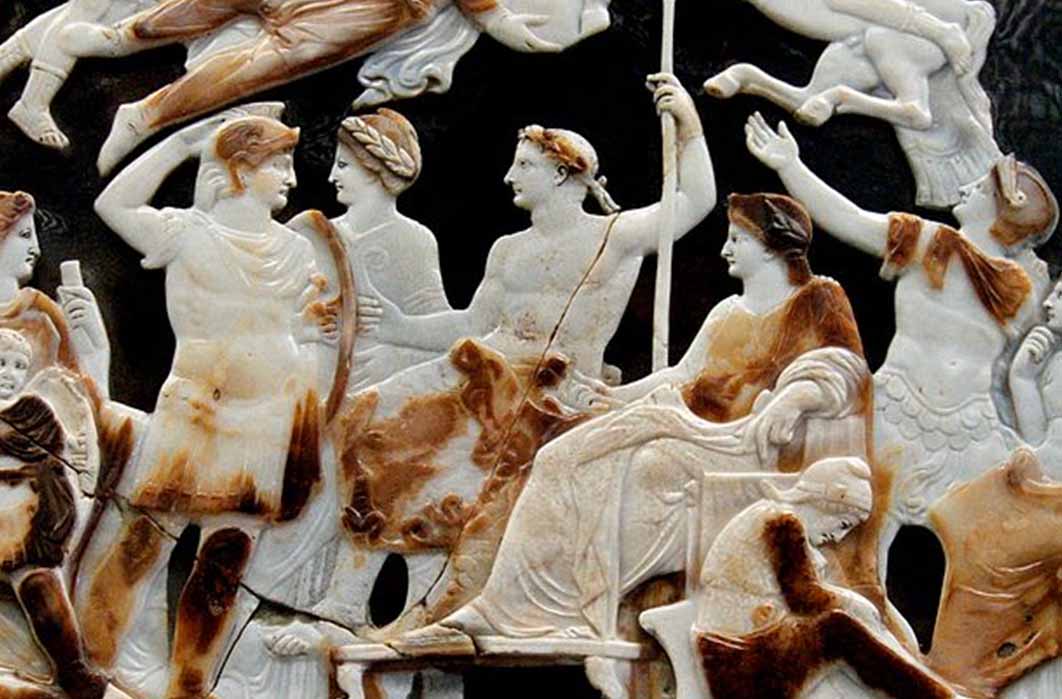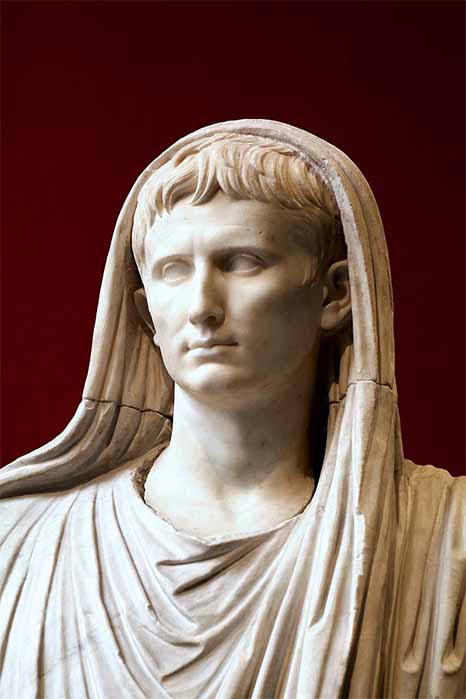
Dawn of the Roman Empire: The Julio-Claudians
When the citizens of Rome ousted their last king in 509 BC, power was divided between the magistrates, the Senate, and the assemblies of the people. This partition of authority, which characterized the institutional system of the Republic, was intended to create a balance of power and prevent the return of any autocratic type of authority.
Following the erosion of the Etruscan hegemony around 474 BC, Rome broke away from its yoke of authority. Following a game of alliances and a period of wars which lasted two centuries, Rome imposed its domination on the italic tribes of central Italy and even on its former masters, the Etruscans.
Subsequently, the Roman conquest of the Greek colonies in the south of the peninsula was completed with the fall of Tarentum (Taranto) in 271 BC. Rome, mistress of most of the peninsula, soon came up against its biggest rival to date: Carthage. It was after the harsh Punic Wars (264–146 BC) that Rome submitted its last great adversary in the West. Having become a prosperous state as well as a formidable military power, Rome set out to conquer the entire Mediterranean world. Eventually, Greece, Asia Minor (Turkey), Judea, Hispania (Spain), and Gaul (France) became Roman provinces.
The Roman Republic’s Demise
For four centuries, the republican regime worked well, but internal struggles, partly due to the increase of social inequities between the wealthy and the poor, started to gradually ruin its structures, thus favoring the return to autocracy. Marius (107–86 BC) then Sylla (82–79 BC), who were the first representatives of this return to a centralization of power, headed the State with the support of the army.
Around 70 BC, a series of disrupting events, such as the servile revolt of Spartacus and the revolts in Pontus and in Judea, triggered new military expeditions. Once peace was restored, the generals glorified by military victories and acquired riches competed for dominance of public and political life in Rome. This was the case of Crassus, Pompey, and Caesar. In 60 BC, the three powerful men allied and formed a triumvirate. When Crassus was killed in 53 BC during a military campaign against the Parthians, the fragile balance was broken. A civil war broke out between the partisans of Pompey and those of Caesar. In 48 BC, Pompey was defeated, and Caesar became dictator for life, sole head of the Roman State. Nephew of Marius, Caesar was a patrician linked to the plebeian cause. He embarked on a political career by exploiting both the upper class and popular discontent. Possibly tempted by the diadem of the monarch, Caesar was assassinated by senators in 44 BC.
The events surrounding the dictatorships of Marius and Sulla were trying experiences for the republican system, and control of political authority began to slip out of the Senate’s hands. The civil war and the following dictatorship of Caesar highlighted the inability of the Senate to restore order and preserve its authority, which was fading before the growing power of the generals. The context was therefore favourable for the establishment of an autocratic regime.
After Caesar’s assassination, the civil wars resumed. In 43 BC, Mark Anthony, Lepidus, and Octavian formed a second triumvirate and marched on Rome. Their victory over the republican legions representing the Senate was decisive: the Republic was agonizing. The rivalry soon appeared between the three men. Once Lepidus was removed from power when the triumvirate expired in 33 BC, conflict erupted between Mark Anthony and Octavian. In 31 BC, at the Battle of Actium, Mark Anthony with Cleopatra as an ally, was beaten. Following their deaths, Egypt became a Roman province. Octavian returned to Rome triumphant.

Head of Augustus as pontifex maximus, Roman artwork of the late Augustan period, last decade of the 1st century BC. (Vicenç Valcárcel Pérez / CC BY-SA 4.0)
Augustus: The First Emperor of Rome (27 BC – 14 AD)
Originating from a family of the equestrian order, Octavian had been admitted to high nobility by alliance. Wishing to make his nephew Octavian a future politician, Julius Caesar had worked diligently in favor of his career development and provided him with an excellent education. This was to prove beneficial as Octavian entered Rome in 31 BC as the de facto master of the Roman world.




